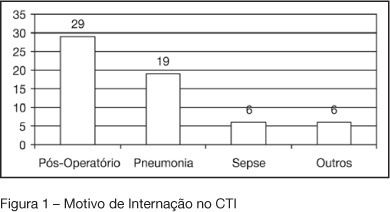
BACKGROUND AND OBJECTIVES: The weaning of patients under mechanical ventilation (MV) is one of the critical stages of respiratory assistance in intensive care. There are several criteria for taking patients out of respiratory prothesis. The aim of this work was to assess if there is a group of parameter which can predict the patients who will succeed in weaning from mechanical ventilation. METHODS: Sixty patients were studied in a prospective way within 24 months. All of them had been in MV for, time > 48 hours. The specific mechanical parameters were monitored for the weaning, clinical data, gasometrical values and laboratory results. The patients were divided into both succeeding and unsucceeding groups for comparable analysis. By the ROC curve, it was observed the best cut point for the numerical variables evaluated for the success of the weaning. RESULTS: In analysis of logistic regression performed to evaluate the simultaneous influence of all the factors: MV < 8 days, APACHE II (Acute Physiologic and Chronic Health Evaluation II) < 16 and Pimax (maximum respiratory pression) > (-) 20 cmH2O were statistically significant to predict the success to weaning, in this order of explainable capacity. CONCLUSIONS: We could conclude that the indexes evaluated were suitable for the determination of the success in the weaning of those patients in mechanical ventilation. APACHE II because of admition constitutes severity indicator and allows awareness from the patient. MV timing, optimizing the treatment in order to accelerate the process of weaning is conducts that aim not only for the weaning success but also interfere both in the evolution and period of hospital admition.
Search
Search in:


Comments